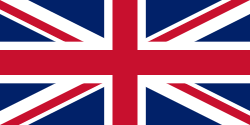Kingdom of Tonga | |||||||||
|---|---|---|---|---|---|---|---|---|---|
| 1900–1970 | |||||||||
| Motto: "Ko e ʻOtua mo Tonga ko hoku tofiʻa" "God and Tonga are my inheritance" | |||||||||
Anthem:
| |||||||||
 Location of the Kingdom of Tonga with present-day borders shown. | |||||||||
| Status | Protected state of the United Kingdom | ||||||||
| Capital | Nuku'alofa | ||||||||
| Common languages | English Tongan | ||||||||
| Religion | Free Wesleyan Church | ||||||||
| Government | Unitary parliamentary semi-constitutional monarchy | ||||||||
| Monarch | |||||||||
• 1900–1918 | George Tupou II | ||||||||
• 1918–1965 | Sālote Tupou III | ||||||||
• 1965–1970 | Tāufaʻāhau Tupou IV | ||||||||
| Prime Minister | |||||||||
• 1900–1905 | Siosateki Veikune (first) | ||||||||
• 1965–1970 | Fatafehi Tu'ipelehake (last) | ||||||||
| Consul | |||||||||
• 1901–1909 | Hamilton Hunter (first) | ||||||||
• 1965–1970 | Archibald Cameron Reid (last) | ||||||||
| Legislature | Legislative Assembly | ||||||||
| History | |||||||||
• Treaty of Friendship | 18 May 1900 | ||||||||
• End of protection status | 4 June 1970 | ||||||||
| Currency | Tongan pound (1921–1967) Tongan paʻanga (1967–1970) | ||||||||
| ISO 3166 code | TO | ||||||||
| |||||||||
The Kingdom of Tonga was a protected state of the United Kingdom from 1900 to 1970, when its protectorate status was removed.










